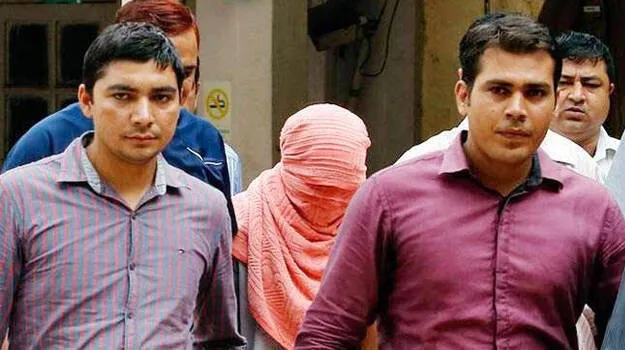

The brutal rape of Nirbhaya took place on December 16, 2012. Six persons, including the four convicts and the juvenile, were behind the heinous crime. While Ram Singh committed suicide in the Tihar Jail days after the trial began in the case, the juvenile was released in 2015 after spending three years in a correctional home.
The four others were hanged to death today (Friday)
After raping and brutalising Nirbhaya, the men including the juvenile dumped her on the road and left for dead on the cold winter night. Her friend who was with her was also severely beaten and thrown out along with her. She was so severely violated that her insides were spilling out when she was taken to hospital. She died in a Singapore hospital after battling for her life for a fortnight.
In December 2012, the juvenile was just a few months away from turning eighteen. When he was sent to a juvenile home, there were nationwide protests, leading to the passage of the Juvenile Justice Bill, 2015.
When the final verdict came, he’s away from the limelight and unaware of it. An NGO official who is a part of his rehabilitation process has reportedly said that the juvenile’s employer doesn’t know about the case.
In December 2016, he was a 22-year-old cook at a roadside eatery in south India.
An officer who was involved in his rehabilitation said:
After his release on December 20 2015, he was kept with an NGO for a few days. Later, the NGO rehabilitated him in the southern part of the country. He is currently working at a roadside eatery.
While at north Delhi’s Majnu Ka Tila shelter, the juvenile was reportedly trained in cooking, painting and tailoring. He was at the juvenile home for three years, during which period he would contact his mother often.
A year ago, his counsellor at the rehabilitation home told media that he hadn’t observed any "positive change" in him.
“There was no regret on his face when I first met him after he was arrested. Nor is there any today. I didn’t have to grill him to make him confess to his crime. He told me in detail about his role in the crime.”
“He told me that he convinced Nirbhaya and her friend to board the bus and about how the crime was committed by all five of them,” the counsellor said. “He also told me that before Nirbhaya boarded the bus, he had tried to convince another girl who was alone to get in, but that had failed,” he said
Earlier, upon his release from the detention centre, Nirbhaya’s parents wanted the juvenile’s identity to be revealed to the world. Fearing that efforts to ‘reform' him in the shelter had failed, her mother said that releasing him posed a threat to society.
“I have spoken out against him in the media. He may try to silence me forever. I travel alone using public transport. Who will protect me? The government is worried about the safety of the juvenile rapist. They feel that he could be killed if his picture is in the public domain. But what about the safety of society? Will we able to recognise him if he’s sitting next to us?,” she quipped.
While he was in the juvenile home, there were also reports of his proximity to the 2011 blast convict and his consequent radicalisation.
Life Before December 2012
The juvenile is from a village in UP, 240 km away from Delhi and ran away from home at the age of 11. After he left his family of six in his village, he came to Delhi where he met Ram Singh. He found a job cleaning the bus in which Nirbhaya, a 23-year-old physiotherapy student, was raped.
His role in the gruesome crime may have led to the Juvenile Justice Bill, 2015. But questions over the quantum of punishment awarded to the juvenile convict and the success of efforts to ‘reform’ him linger.
The moot question is: Will he still be a threat to society?